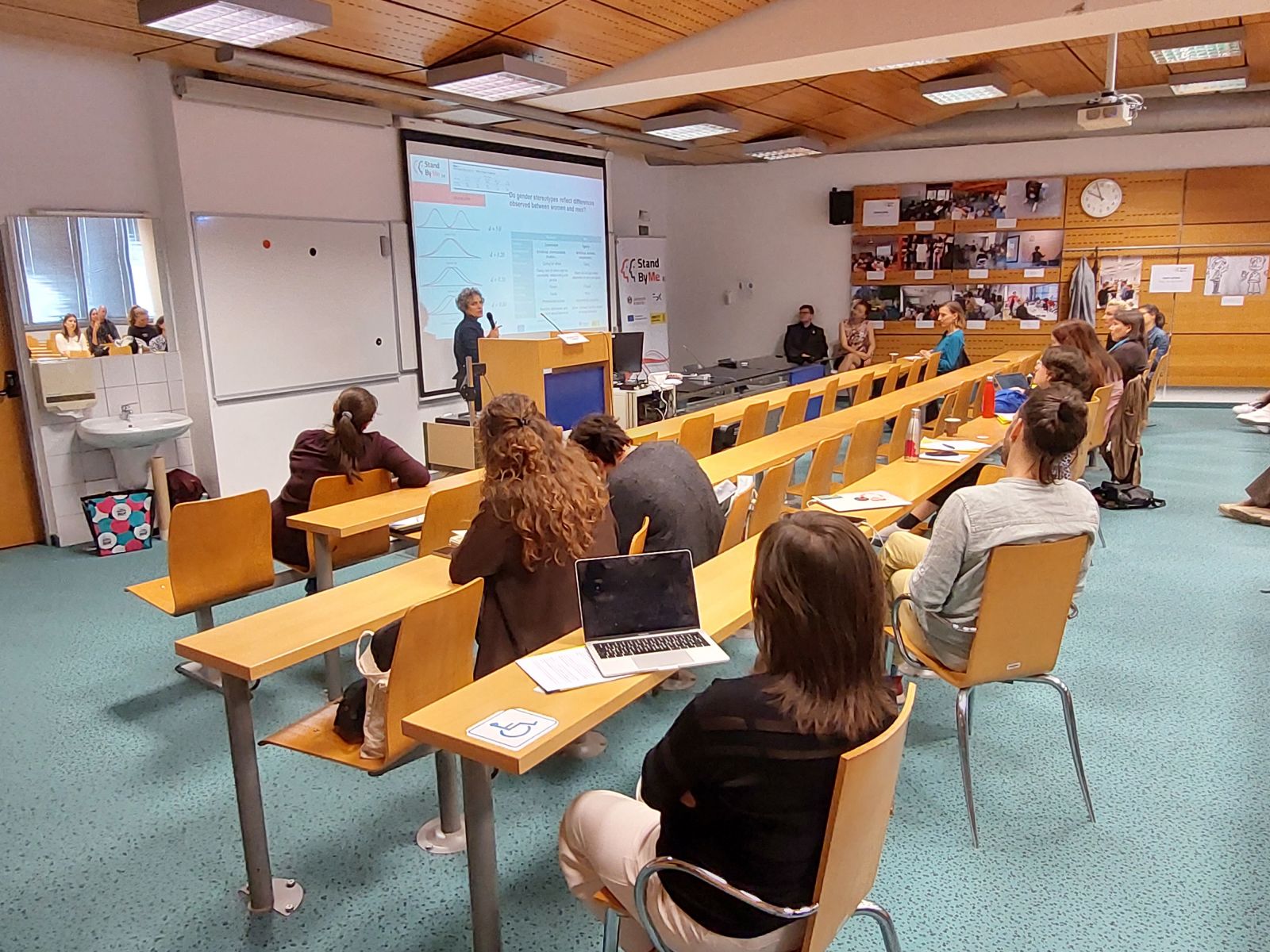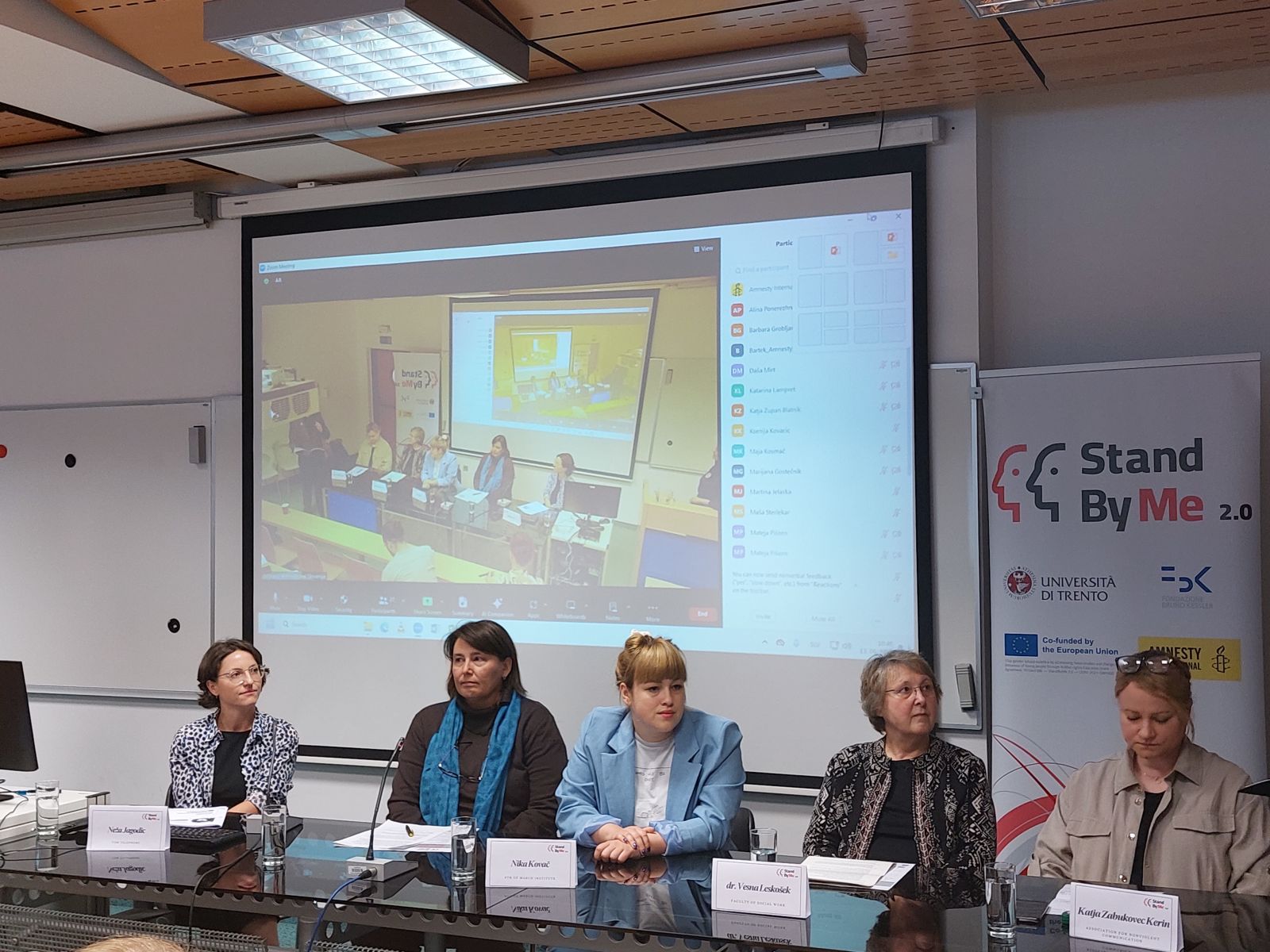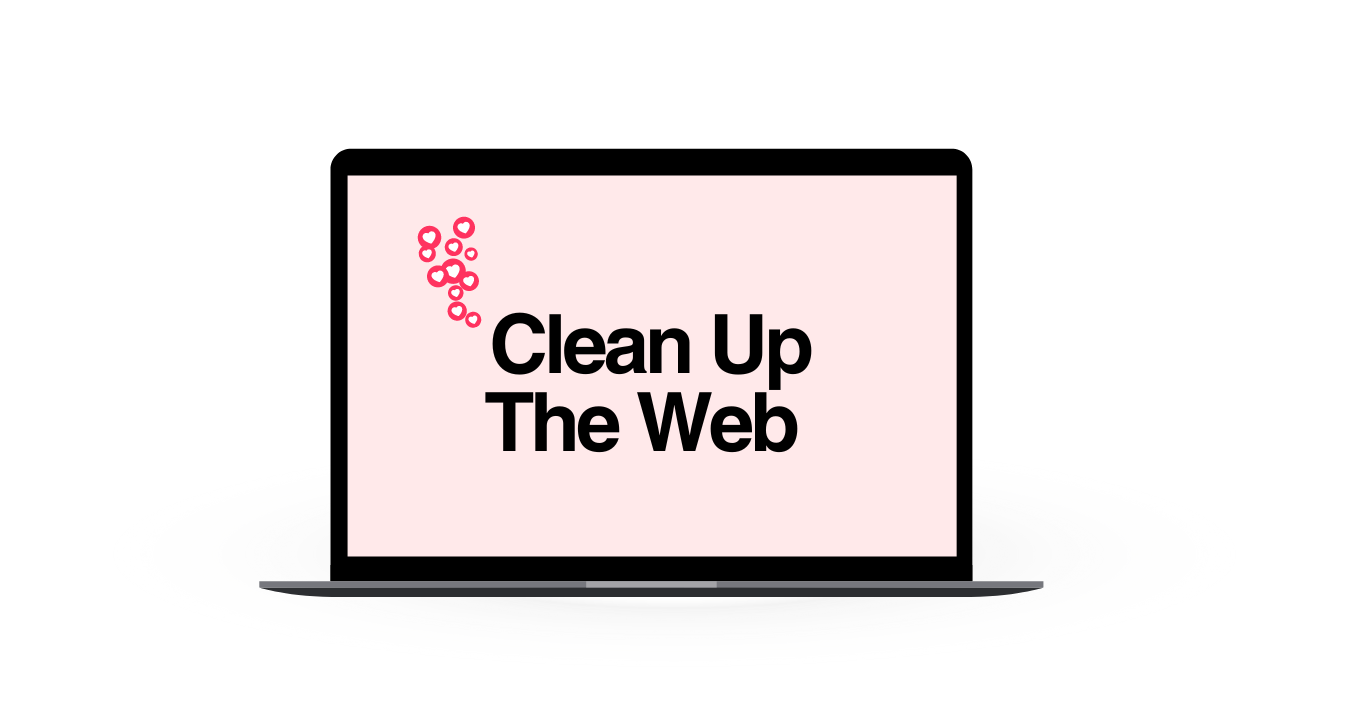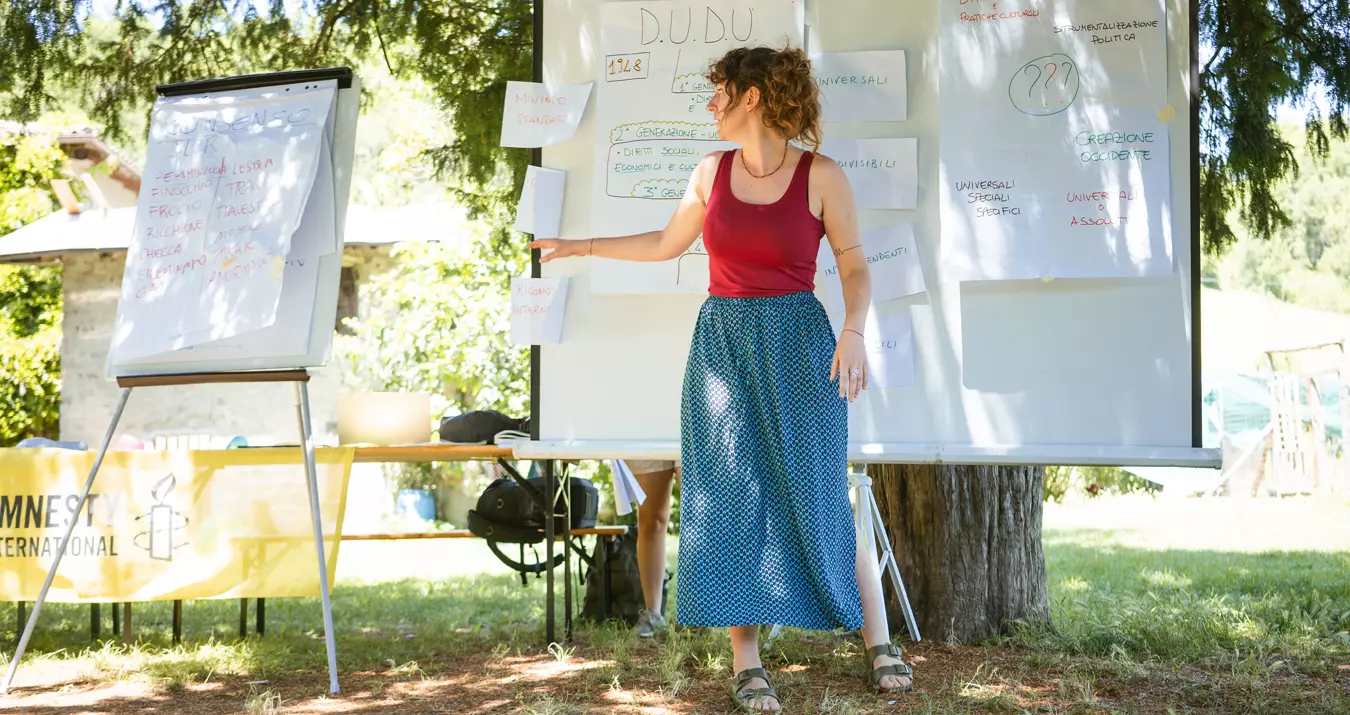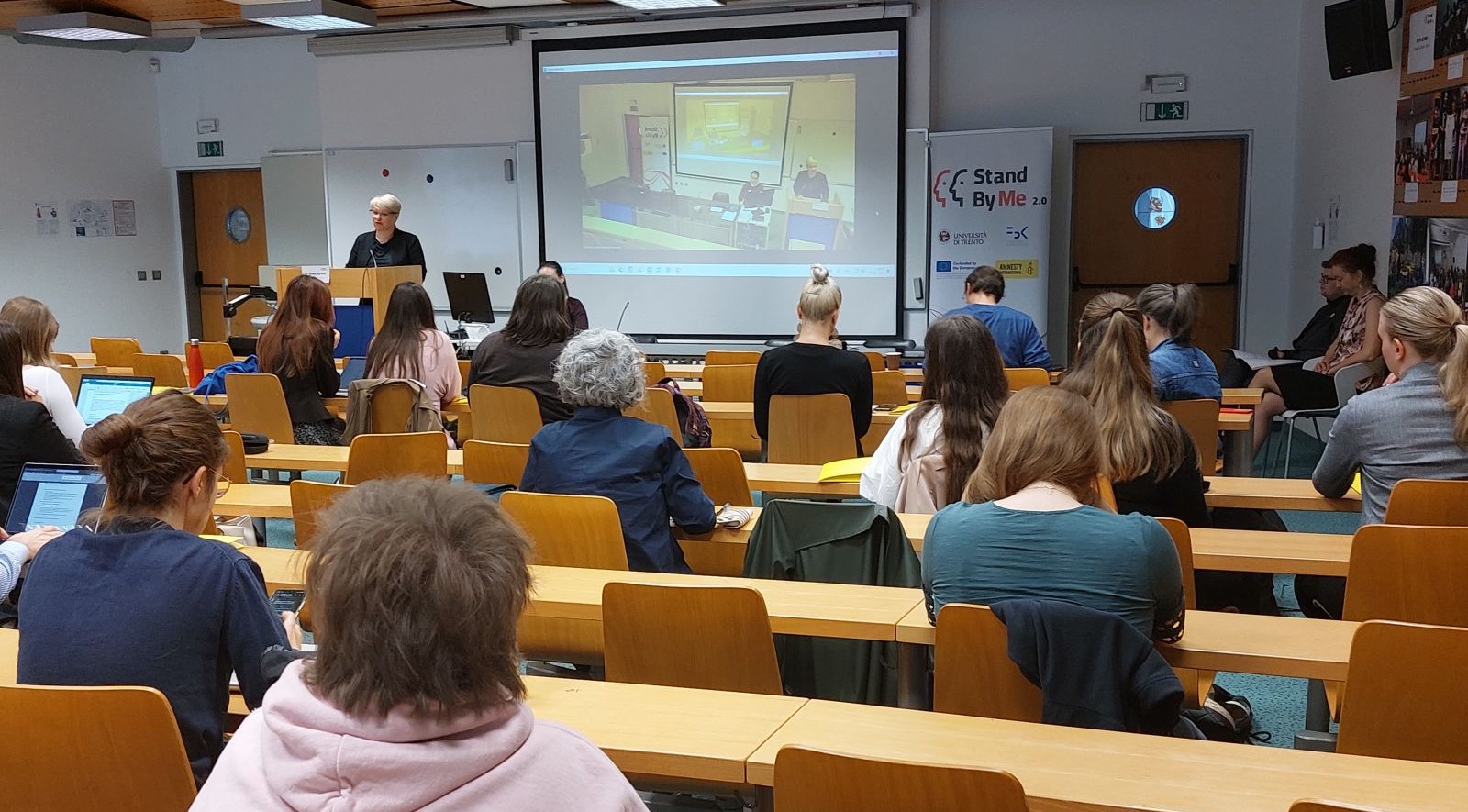
STAND BY ME 2.0
The final conference of the Stand By Me 2.0 project
The final conference of Stand My me 2.0, which took place on June 13, 2024 in Ljubljana, was an opportunity to present the work of the Stand By Me 2.0 project.
Nataša Posel, director of Amnesty International Slovenia, greeted the participants who joined online and live.
“Violence against women and girls is present in the lives of each and every one of us. In professional life or private life. It affects us all” she said. “Whether it’s direct violence or hidden behind cultural norms or even humor. Be it physical, verbal or psychological; in physical or online space – each of us has already found ourselves on the site of victim statistics or we know friends, neighbors, women or girls around us who suffer from violence. Where there is discrimination, where there is war or poverty, women and girls suffer even more. The bruises of violence hurt even after the physical wounds have healed and affect all aspects of women’s and girls’ lives: their health, their families, their work environment.” The head of the Representation of the European Commission in Slovenia, dr. Jerneja Jug and State Secretary at the Ministry of Labour, Family, Social Affairs and Equal Opportunities Dan Juvan also had opening speeches.
In the left photo: Neža Jagodic, TOM telephone; Maja Pan, member of the AIS executive committee, who coordinated the round table; Nika Kovač, Institute March 8; dr. Vesna Leskošek, Faculty of Social Work; Katja Zabukovec Kerin, Society for Nonviolent Communication.
The role of education in the Istanbul Convention
The key speaker at the conference was dr. Maria Paola Paladino, professor of social psychology at the Department of Psychology and Cognitive Science of the University of Trento, who has been working on the project. In her paper, she focused on the challenges in education systems in raising awareness and preventing gender-based violence against women and girls.
She pointed out the state’s obligations in the Council of Europe Convention on preventing and combating violence against women and domestic violence (Istanbul Convention), which puts great emphasis also on the importance of education in preventing violence against women and girls.
The teaching staff has an important role in this, but this role is to a certain extent limited as parents and even social and mass media also have a great influence.
Gender stereotypes must be challenged; it’s worth mentioning that in different groups there may be greater differences between women than there are between men and women regarding certain attitudes. For the pedagogical context, it is very important to be aware that addressing issues of violence against women and girls can contribute to anxiety.
“Therefore, it’s important to not only provide knowledge, but to link this with opportunities for action. Young people must be given hope that things can change.”
Action is at the heart of the approach of the Stand By Me 2.0 project, where we have been developing materials for education and youth activism in the field of combating violence against women and girls online and in physical life. The common thread of our effort has been to interweave education and activism in the physical world with the digital by focusing on stereotypes associated with harmful concepts of masculinity.
The round table highlighted the great importance
of preventive activities
“We know what needs to be done. There are a lot of groups and “paper”, a lot of investment of energy by non-governmental organizations (NGOs), which must keep coming up with new and new proposals on how to deal with and eliminate violence against women and girls: now action by the authorities is needed.” This is how we could sum up the words of Katja Zabukovec Kerin from the Society for Nonviolent Communication at the round table organized as part of the final conference. She added: “The elimination of violence against women must be systemic, it must be the work of the government, it cannot be based only on NGOs.”
“If you have an environment in which you feel safe to report violence, it is likely that you will,” said Dr. Vesna Leskošek from the Faculty of Social Work, when explaining the data of the EU Fundamental Rights Agency, which show a lot of reported violence against women in the north of Europe (with stronger laws) than in the south (with weaker ones). Among other things, Leskošek highlighted the hierarchical relationships at the university, where there is little chance that perpetrators in high positions will be removed from them.
Katja Zabukovec Kerin and Vesna Leskošek, were joined by Nika Kovač from the 8 March Institute and Neža Jagodic from TOM telephone at the round table moderated by Maja Pan, a member of the executive board of Amnesty Slovenia.
Nika Kovač spoke about her experiences with the spread of the #metoomovement in Slovenia. With #me too, she missed the dimension of establishing systemic changes, which is why she is very happy about one of the major successes in Slovenia also connected to this movement, i.e. the change of the sexual violence legislation in line with the consensus model. Slovenian Amnesty has also worked tirelessly to achieve this legislative change in June of 2021.
In the fight against violence against women, Nika Kovač, like others, highlighted the importance of prevention. “But when the authorities take preventive measures, they don’t get applause,” she was critical.
Neža Jagodic presented the work of the TOM telephone, where young people are advised by phone, e-mail or in the chat room on the website. Their service is free, anonymous and confidential. According to her, the problems with which young people turn to them are becoming more and more demanding and complex. Common topics concern peers (18 %), family (14 %) and mental health challenges (14 %).
She spent more time on extortion with intimate recordings (sextortion), as it is increasing throughout Europe and at TOM phone. The victims are both boys and girls; the former are more often victims of financial extortion, while girls are more often extorted for photographs or also for sexual extortion. These are mostly internationally organized scams.
Presentation of project results
In addition to young people’s recommendations to decision-makers, the project also delivered on a digital online platform, a manual for teaching staff, young people organized their own campaigns, and two online courses are also available:
- Gender-based violence. Click, register and start learning (90 min).
- How to identify and combat online gender-based violence? Click, register and start learning (90 min).
continue reading
Related Posts
This infographic presents recommendations that emerged from the Stand By Me 2.0...
One of the way to counter harmful gender stereotypes that contribute to online and offline...

